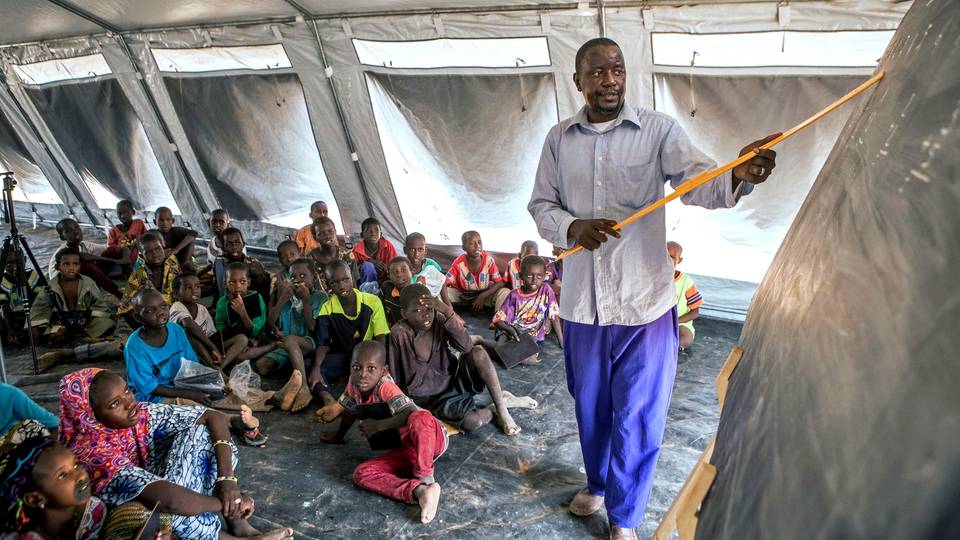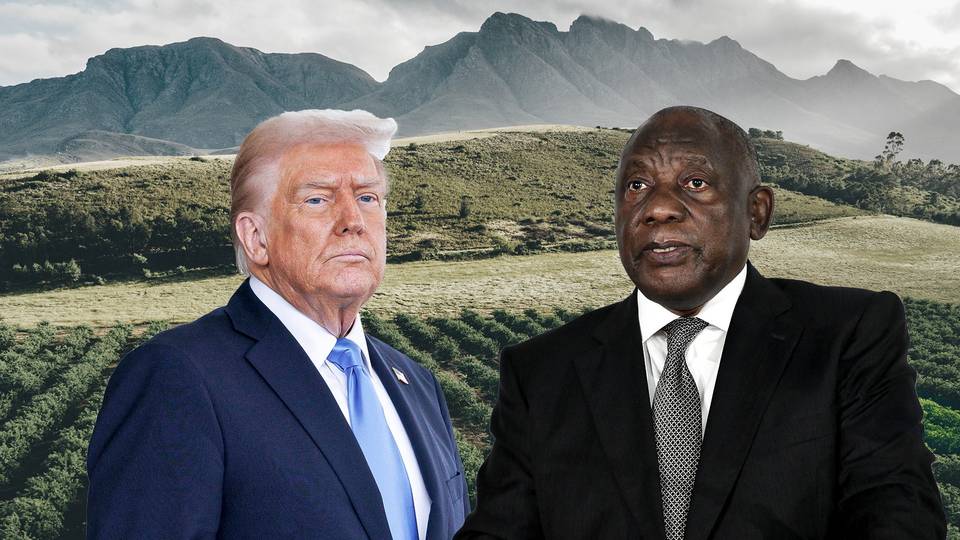Sport
Dollar
38,1295
0.12 %Euro
43,6697
1.37 %Gram Gold
4.084,2300
3.26 %Quarter Gold
6.731,9300
3.38 %Silver
40,3600
1.92 %Trade between African countries remains the continent's greatest potential yet it has proven a hard task for African Union member states.

By Patrick Wanjohi
The African continent needs to be fully economically borderless today for your African business to thrive.
Borders are detrimental to economic progress. The business environment is becoming increasingly untenable for business that have to contend with paying taxes for their products to move across borders in the continent.
It also doesn’t make economic sense for you to apply and pay for a visa to visit another African country.
Additionally, that innovative idea you have could benefit many more Africans if it were embraced seamlessly without bottlenecks.
Former Ghanaian President Kwame Nkrumah, in his 1968 essay titled "Why Africa Must Unite", said, “If we allow ourselves to be balkanised, we shall be re-colonised and be picked off one after the other.”
On the surface, the collapse of economic borders seems more idealistic and politically correct, but in reality, it is a tough task that must be accomplished. Today, there exist realistic and practical solutions worth pressuring and lobbying your government for.
The question is, how will all countries in Africa open their borders to each other to trade without jeopardising their internal economic development, as well as maintaining aspects like internal security and an upper hand for their citizens to benefit first?
The African Union says the solution lies in the African Continental Free Trade Area (AfCFTA). The work to make it a reality is ongoing.
Regional integration
In a nutshell, the AfCFTA agreement seeks to transform the African continent into one liberalised market for the trade of goods and services.
Over 1.3 billion Africans should buy and sell their products freely without barriers and benefit from a market size worth over $3.4 trillion. The idea, which entered into force on 30 May 2019, seeks to tap into this population as a formidable market to grow intra-African trade.
If implemented fully, this is a crucial step to achieving an economically borderless Africa. One of the tenets of the AfCFTA is eliminating tariffs and non-tariff barriers to trade goods and services. The agreement has yet to be fully implemented by several African nations. Even with this impediment, there are still wins being realised, which are clear indicators that this is a good idea for African businesses.
Andrew Mold, UN Economic Commission for Africa’s Chief of AfCFTA Cluster at the Sub-regional Office for East Africa, states that research shows sectors such as agro-industry, manufacturing, and services have significant growth potential.
“Simulation work by UNECA suggests a 35–36% increase in intra-African trade, but if you look at the agro-food sector, for example, you see the increases will be nearly 50%, and services trade will be up 40% as well, once we have full implementation of the agreement,” said Dr Mold.
This is great news, especially if you're in the agricultural industry. The agriculture sector in Africa represents 15% of the continent's GDP, valued at approximately $100 billion.
So, the good news for you is that if your country and its neighbours fully relax non-tariff barriers, such as export taxes and import bans, and also reduce domestic production costs, your production costs will drop, and that means more profits and room for expansion and employment for more people. The same is true not only for agriculture but for all other industries as well.
Dynamic connection
The African Union says the success of AfCFTA is highly dependent on the free movement of people. Its statistics show that while 32 AU member states have signed the protocol for free movement of persons, only four have ratified it. This goes back to the political will of African leaders.
Developing your business requires moving freely, marketing your product, seeking opportunities, benchmarking, and connecting with others. More development of the tourism sector must therefore be a top priority.
The East African Community, for example, has made strides in this. A Kenyan can enter Uganda using only their identity card, and a Ugandan can do the same while visiting Kenya. No visa is required.
Kenya has gone a step further to abolish visa requirements and instead introduced an Electronic Travel Authorisation (ETA), which requires travellers to obtain online authorisation at a fee to access the country.
However, it still exempts some African countries from this ETA fee, as they have concluded visa abolition agreements or signed bilateral waiver agreements with the government of Kenya. These include Comoros, South Africa, Ethiopia, Congo, Eritrea, and Mozambique.
This act of good faith could greatly spur the tourism sector if adopted across the continent. Since tourism is among the five priority areas under the AfCFTA, experts suggest tourism makes regional integration possible and equally makes businesses thrive.
Geoffrey Manyara, UN ECA’s Economic Affairs Officer, SRO-EA-Sub Regional Initiatives section, says their study reveals the correlation between tourism and trade.
“Tourism is what induces trade, and just to give you an example, one of the leading exporters that came to Rwanda sometime back came to Rwanda as a tourist but realised there was an opportunity there, and now he is the leading exporter,” said Manyara.
One way this tourism ease could happen is also through Free Skies. African airlines like Kenya Airways, Ethiopian Airlines, and RwandAir could collaborate partly rather than compete totally. This means relaxing airfares and charges on shipment of cargo across the continent.
The Single African Air Transport Market (SAATM), a pillar of integration and intra-African trade, was launched by the African Union on 28 January 2018.
The AU Commission chairperson, Moussa Faki Mahamat, said open skies would lead to “an increase in flight availability and greater inter-regional connectivity between various cities, commercial centres, and other important destinations in Africa, not just capitals.
Furthermore, there will be a massive reduction in air ticket prices and reduced journey times, thanks to the elimination of unnecessary interchanges and overlay times at airports.
Over 30 African countries have signed the protocol but implementation still remains a challenge.
One currency
Due to the abundance of currencies on the continent, the dollar now acts as the broker in African trade. If your country of origin could collaborate with others to establish a unified African currency backed by the continent’s natural resources, the currency for trade would be robust.
This would facilitate trade, making it easier for an Egyptian to do business with a South African or for a Burundian to trade with a Liberian without the worry of Forex inhibitions.
Additionally, you must improve your communication skills if you want to succeed in your business. Therefore, the continent needs a common language. Whether it is Kiswahili, Khosa, or Yoruba, we must learn to adopt it quickly to communicate and conduct business.
You now possess the necessary components to turn your company into a franchise by the time Africa meets Agenda 2063's economic goal. The economic borders need to be collapsed now; the AfCFTA outlines that very clearly, but that big move to one market must be pushed by your government.
According to the AfCFTA Secretariat, 54 African countries have signed the agreement, and 48 have deposited their instruments of ratification. If well implemented, the AU says 30 million people will be lifted out of extreme poverty, and for you, the businessman, you will reap even more.
The time to act is now. As President Kwame Nkrumah stated in his essay: “We in Africa cannot wait; we dare not wait until we are encompassed by our doom for failing to seize the grand opportunity, rising to the call of Africa’s finest hour.”
The author, Patrick Wanjohi, is a communication consultant attached to the African Capacity Building Foundation, Africa’s leading institution for capacity development, backed by African Union member states.
Comments
No comments Yet




















Comment